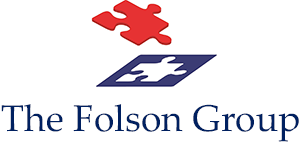Understanding Local Law 97
Key Dates and Fines for NYC Buildings
Local Law 97, part of New York City's ambitious Climate Mobilization Act, is set to revolutionize the way buildings in the city approach energy consumption and carbon emissions. Co-op and condo owners, as well as their building’s boards, need to familiarize themselves with the critical dates and fine structure outlined by the law. Because we are frequently asked when the fines start, this article has a clear breakdown of the important dates for annual fines and how they will be calculated, enabling building owners to plan and take action towards compliance.
Articles often talk about that the fine is $268 per metric ton of carbon dioxide (CO2) emissions exceeding the prescribed limits. This means that for every ton of CO2 emitted above the threshold, a fine of $268 will be incurred. While that may not sound like a lot, keep in mind that buildings can emit hundreds of tons of CO2! It's important to note that the fines are not based on a flat fee, but rather on the actual amount of emissions over the limit.
Local Law 97 Fines and Corresponding Year of Carbon Emissions
(with two example buildings)
The first annual fine under Local Law 97 will be issued in 2025 and will be based on the energy consumption data recorded during the period of 1/1/2024 - 12/31/2024. It's important to note that fines for subsequent years, from 2026 to 2029, will be based on the energy used and carbon emissions generated each previous year.
In 2030, there will be a shift in the fine structure as the penalties will now be calculated based on both energy consumption and carbon emissions during the calendar year of 1/1/2030 - 12/31/2030. This marks a significant milestone in Local Law 97, highlighting the increased focus on carbon reduction and the need for more sustainable practices.
From 2031 onwards, fines will be based solely on the recorded carbon emissions for each prior calendar year. This transition emphasizes the importance of reducing carbon emissions and aligning with the long-term sustainability goals of the city.
Understanding the dates and fine structure outlined by Local Law 97 is crucial for co-op and condo owners and building boards in NYC. By being aware of when fines will be issued and the specific data periods considered, building owners can proactively assess their energy consumption, carbon emissions, and take the necessary steps preparing for Local Law 97 to ensure compliance. The journey towards a greener and more sustainable future starts with comprehensive knowledge of Local Law 97 and its implications.
The Folson Group is a NYC energy efficiency consultant, helping buildings with all their Environmental, Social, and Governance (ESG)-related policies. Services cover the entire process, from planning to implementation and completion, and clients have achieved energy reductions of up to 40%. If you are interested in making your building more energy efficient and environmentally friendly, consider reaching out to The Folson Group to schedule a consultation.

